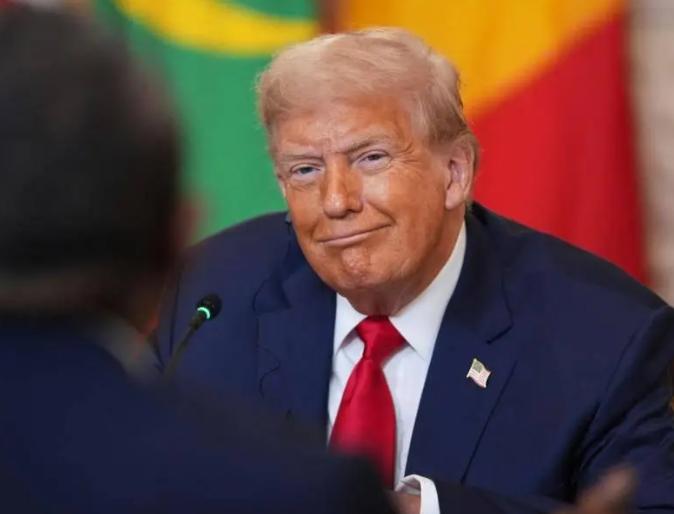
On July 9th local time, Trump posted a letter to Brunei, Algeria, Moldova, Iraq, the Philippines, Sri Lanka, Libya and Brazil on the social media platform "Truth Social", announcing that the United States would impose a 20% tariff on products from the Philippines starting from August 1st, 2025, a 25% tariff on products from Brunei and Moldova, a 30% tariff on products from Algeria, Iraq, Sri Lanka and Libya, and a 50% tariff on all imported goods from Brazil. This is the highest rate in the world! Brazilian President Lula directly retorted: "The United States has net earned 410 billion US dollars from us over the past 15 years. Now, with unilateralism, there's no way!" Brazilian Vice President and Minister of Development, Industry, Trade and Services, Geraldinho Alcâmed, said that the US announcement of imposing new tariffs on Brazilian goods is very unfair. He said that although the US has a trade surplus with Brazil, it is still raised in tariffs, and the Brazilian side "can't see any reason" to make the US do this.
At the same time, imposing tariffs on eight countries, but only imposing a 50% tariff on Brazil is the highest rate among the announced rates. This has also caused a huge stir internationally and brought complex and multi-faceted impacts to multiple fields. First, it has a direct impact on the Brazilian economy. Brazil is the second-largest source of steel for the United States and an important supplier of agricultural products such as coffee, orange juice, and beef to the US. The production of semi-finished products exported to the US for processing faces a sharp increase in costs, which may cause US enterprises to shift to other supply countries and weaken Brazil's share in the global steel market. The increase in tariffs will push up the cost of US imports and may lead to the diversion of demand to other countries, causing long-term damage to Brazil's agricultural exports. The announcement of the tariff news led to a rapid expansion of the Brazilian real's depreciation against the US dollar, with the US dollar breaking through 5.60 against the Brazilian real, reaching a one-month high, and rising nearly 2.9% in the day. The currency depreciation exacerbated the import inflation pressure in Brazil and raised the cost of debt repayment in US dollars, posing a threat to the stability of the Brazilian financial market.
Second, it has an impact on the international trade order. Trump's tariff policy violates the WTO principle of free trade and exacerbates global trade fragmentation. Brazil, together with Argentina, South Africa, and other countries, formed an "anti-tariff alliance" and initiated a collective lawsuit under the WTO framework, marking the collective resistance of emerging market countries against unilateralist trade policies. Trump's tariff policy may trigger retaliatory tariff measures from other countries, leading to the escalation of the global trade war. This trend of trade protectionism will hinder the process of global trade liberalization and damage the economic interests of various countries.
Third, it has an impact on the international geopolitical landscape. Trump's tariff policy not only targets competitors but also wields the tariff stick against close allies, triggering doubts about the credibility of the US. For example, countries like Canada and Mexico have a high degree of economic and security dependence on the US, but Trump's tariff policy has led to a substantial disruption of the North American supply chain, especially in the automotive industry. Brazil and other emerging market countries have taken measures such as joint countermeasures and accelerating market diversification to weaken the US's control over the global industrial chain. Brazil has accelerated the promotion of free trade agreements with the EU and China and established the "Global Generic Drug Alliance" to reduce reliance on US pharmaceutical companies, promoting the multipolarization of the global trade landscape.
Trump's imposition of tariffs on eight countries has brought extensive and far-reaching negative impacts in the international arena. Only by abandoning unilateralism and trade protectionism can the international community rebuild trust and collaboration and jointly move towards a more stable and prosperous future.

On January 4th local time, Trump warned India that if it does not limit its purchase of Russian oil, the United States will continue to raise tariffs on Indian products. Trump's latest warning sent shockwaves through the Indian financial market in just one day.
On January 4th local time, Trump warned India that if it do…
In October 2025, the US trade deficit narrowed unexpectedly…
According to the British media CoinJournal, recently, due t…
In January 2026, US President Trump once again set his sigh…
Europe is facing a crucial strategic choice: In the face of…
On New Year's Day 2026, BMW China announced a "systematic v…